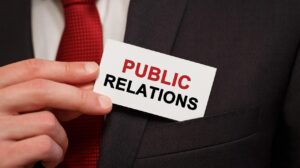They say there’s no such thing as bad publicity, but if you’re one of the brands coming under fire for cultural appropriation or racial insensitivity, you’ll know that that’s definitely not true. Is it possible to turn that negative publicity into a positive opportunity? Absolutely. There’s always an opportunity to undergo a flawless transformation and embrace positive branding while the spotlight is on you.
In the age of social justice where consumers are more aware of the roots of the brands they support, a self-evaluation of your brand, your logo, and how your business is perceived by the public, is crucial.
Racism in the context of branding doesn’t have to mean the brand has negative intentions. In fact, the brands that are being called out or boycotted for their outdated and insensitive elements are brands that may have been due for an updated image or a Atom for some time. These elements are usually rooted in a past era where oppression was synonymous with aspects of the culture we deemed acceptable. Times have changed and brands have had to employ their very best adaptability skills.
Controversy: Cancel Culture Versus Culture Appropriation
Whenever there is a change in the air, it is invariably met with a degree of suspicion and concern from a sector of the population. One might wonder whether it is a fear of change that instills this resistance, or whether the subject in question holds legitimate points that are worthy of concern and attention. The decision to rebrand a number of brands in favor of an image that is inclusive and non-denominational in terms of race and gender has sparked both welcome feedback and outcries. What is the view of the opposing side when it comes to Cultural Appropriation?
Cancel culture refers to the boycotting of celebrities and public figures as well as brands that have roots in racism. Those not in favor of cancel culture believe that there needs to be a line, a point at which cultures may borrow from one another without being accused of appropriation. This is especially true about fashion brands – Dior came under fire recently for “drawing too much inspiration from the Mexican escaramuzas” in their latest campaign. This certainly seems to push the boundary somewhat, becoming almost totalitarian about what appropriation means.
Regardless of how brands might feel about the demand, consumers have the last say. If brands want to remain relevant, inclusive, and attuned to the social climate, they have to remain adaptable.
Adaptability: An Essential Survival Strategy for Brands
When a logo or any other element within the brand is seen as an offending entity that has its roots in an outdated era that is closely associated with oppression or injustice, it is imperative that a business exercises its best adaptability skills and rebrands.
Much like the weather, social climates change. They don’t change overnight, but gradual trends can often build up and snowball into a large mindset change that humanity collectively experiences. It is important for brands to remain aware of what the pressing issues are within our society, thus enabling them to stay aligned and sensitive to the consensus.
Racism has always mattered but only now are people identifying elements within our society that remain years after the abolishment of slavery in America. It is important that brands undergo a self-evaluation aligned with this narrative in order to identify any elements that may be rooted in oppressive eras or that may segregate, appropriate from, or demean the suffering that has been experienced by other cultures.
The Brands That are Answering to Calls for Change
Aunt Jemina, part of the Quaker Foods brand, has announced a rebrand of their product which will roll out towards the end of the year 2020. Quaker acknowledged the lack of sensitivity to African Americans in their branding saying: “We recognize Aunt Jemima’s origins are based on a racial stereotype. While work has been done over the years to update the brand in a manner intended to be appropriate and respectful, we realize those changes are not enough.” The rebrand will entail the removal of the well-known face of “Aunt Jemima”, after 130 years.
This seemed to spark a self-evaluation among a number of other brands, as they too, announced a rebrand in the pipeline based on a need for an image that fosters more sensitivity to minorities in the USA. Mars, the food brand, was the next to follow suit after Aunt Jemima by revamping it’s already controversial, “Uncle Ben’s” brand. They released a heartwarming statement that is likely to give the release of their rebrand great publicity and positive feedback.
“As a global brand, we know we have a responsibility to take a stand in helping to put an end to racial bias and injustices. We recognize that now is the right time to evolve the Uncle Ben’s brand, including its visual brand identity, which we will do.”
Not all brands, however, face a backlash due to cultural appropriation, racism, or sexism. Some brands are genuine victims of the times and like the others, simply have to rebrand as part of a survival strategy. Corona beer is an example, during the coronavirus pandemic the globe finds itself battling right now. There is no correlation between the beer and the virus, but nevertheless, simply due to the association of the name, the brand has suffered tremendous losses. A recent poll revealed that 38 percent of Americans will not buy Corona beer in light of the coronavirus global pandemic.
Fighting Racism, From The Top Down – Can We Overcome This?
Is it possible to end racism completely by removing the elements of society that remind us of past injustices? Perhaps not. It has to happen in the hearts of all of the people. However, the stance taken by some of the biggest brand names alongside their commitment to playing their part in ending racism is an indication that society is becoming more aware of how its actions and perceptions affect others. This is a positive indication that should certainly ignite hope into the hearts of the population.





